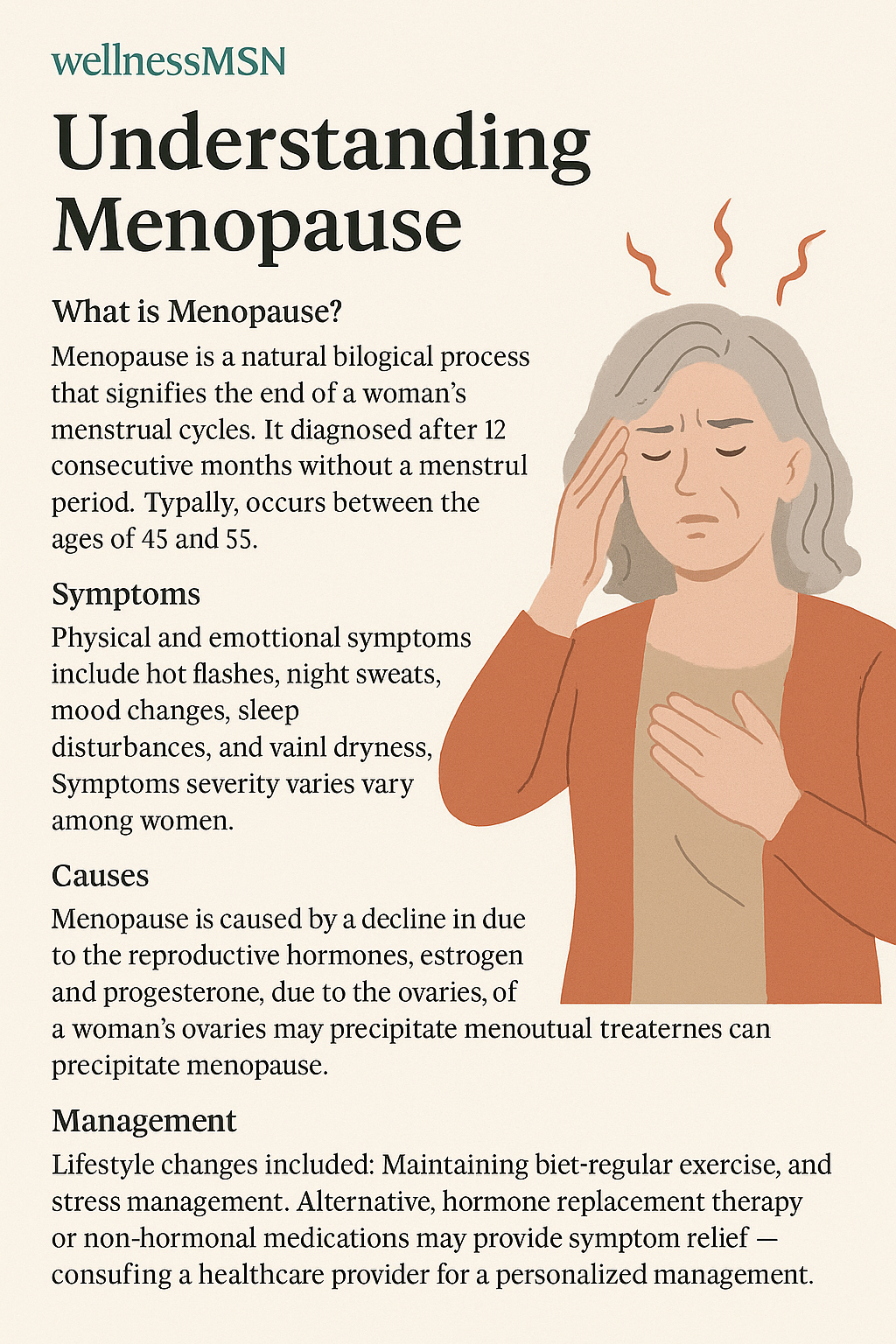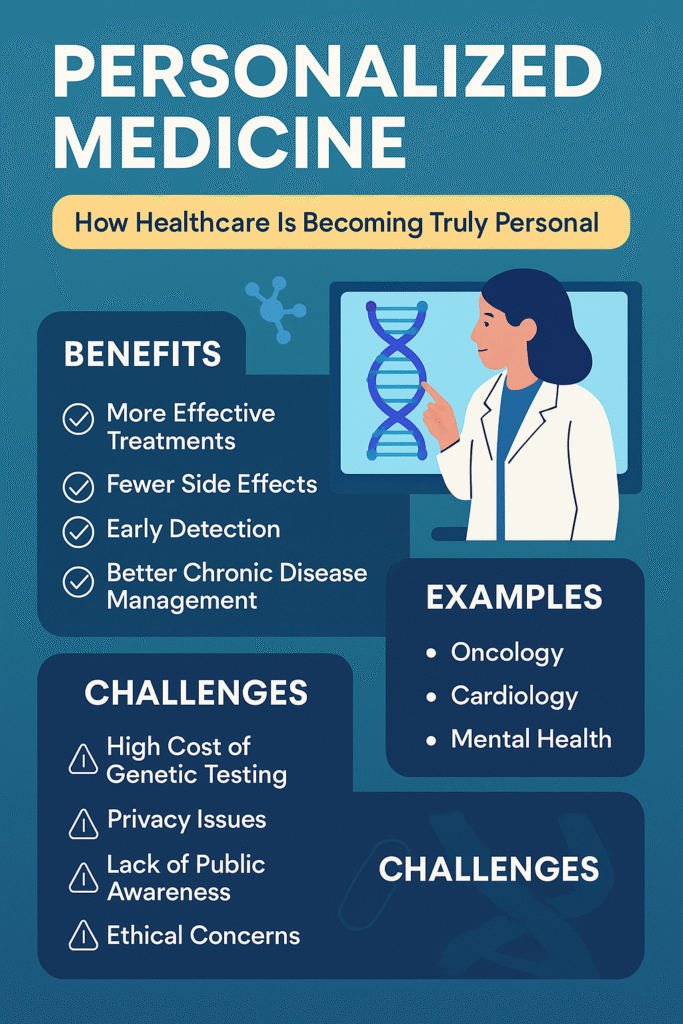By WellnessMSN Team
Menopause is a natural, inevitable phase of every woman’s life — yet it’s often misunderstood or surrounded by silence. At WellnessMSN, we believe in empowering our readers with clear, practical, and compassionate health information. This guide breaks down what menopause really means, what to expect, and how to navigate it confidently.

What Is Menopause?
Menopause marks the permanent end of a woman’s menstrual cycles. It is officially diagnosed after 12 consecutive months without a period, not due to any medical condition. Most women reach menopause between the ages of 45 and 55, although this can vary.
This biological milestone signals the end of reproductive years and is driven by declining levels of estrogen and progesterone, the primary female sex hormones.
The Three Stages of Menopause
Perimenopause
Begins several years before menopause. Hormone levels fluctuate, and menstrual cycles may become irregular. Symptoms may start during this phase.
Menopause
Confirmed when a woman hasn’t had a period for 12 months. Estrogen production significantly drops.
Postmenopause
The years after menopause. Symptoms may ease, but health risks like osteoporosis and heart disease can increase.
Common Symptoms
Every woman experiences menopause differently, but some common symptoms include:
- Hot flashes and night sweats
- Irregular or missed periods
- Mood swings and irritability
- Sleep disturbances
- Vaginal dryness or discomfort
- Weight gain, especially around the abdomen
- Thinning hair or dry skin
- Reduced libido
- Memory lapses or difficulty concentrating (“brain fog”)
Not all symptoms require treatment, but being informed helps women make better choices for their well-being.
Causes of Early or Premature Menopause
While natural menopause typically occurs in the late 40s or early 50s, early menopause (before 45) or premature menopause (before 40) can be caused by:
- Genetics
- Autoimmune diseases
- Medical treatments like chemotherapy or radiation
- Surgical removal of ovaries
These women may require additional medical support and monitoring.
Health Risks After Menopause
The drop in estrogen levels can raise the risk of:
- Osteoporosis – bones become brittle and more prone to fractures.
- Heart disease – estrogen helps protect the heart; its absence increases risk.
- Urinary incontinence – weakened pelvic floor muscles.
- Weight gain and metabolic changes
Managing Menopause Naturally and Medically
Menopause isn’t an illness. But when symptoms interfere with daily life, they deserve attention.
Lifestyle Strategies
- Exercise regularly – supports heart and bone health.
- Eat a balanced diet – rich in calcium, vitamin D, and fiber.
- Prioritize sleep – set a routine and manage screen time.
- Practice stress reduction – yoga, meditation, or deep breathing.
- Avoid triggers – spicy food, caffeine, and alcohol may worsen hot flashes.
Medical Options
Hormone Replacement Therapy (HRT) – effective for moderate to severe symptoms. Not suitable for everyone.
Non-hormonal medications – certain antidepressants and blood pressure drugs can relieve hot flashes.
Vaginal estrogen – treats dryness and discomfort locally.
Cognitive Behavioral Therapy (CBT) – supports emotional well-being.
Always speak with a healthcare provider before starting any therapy.
When to See a Doctor
You should consult a healthcare professional if:
- Bleeding occurs after menopause
- Symptoms become unmanageable
- You notice unusual mood changes
- You need support managing bone or heart health.
Final Thoughts
Menopause is not the end — it’s a powerful beginning of a new chapter. With the right knowledge and care, women can navigate this life stage with strength, balance, and self-compassion.
At WellnessMSN, we encourage open conversations, evidence-based choices, and supporting one another through every phase of womanhood.

